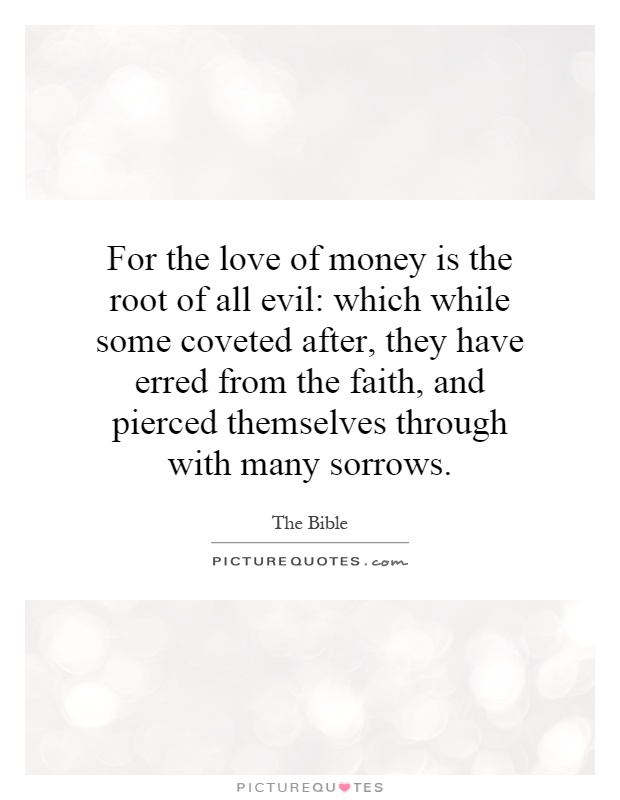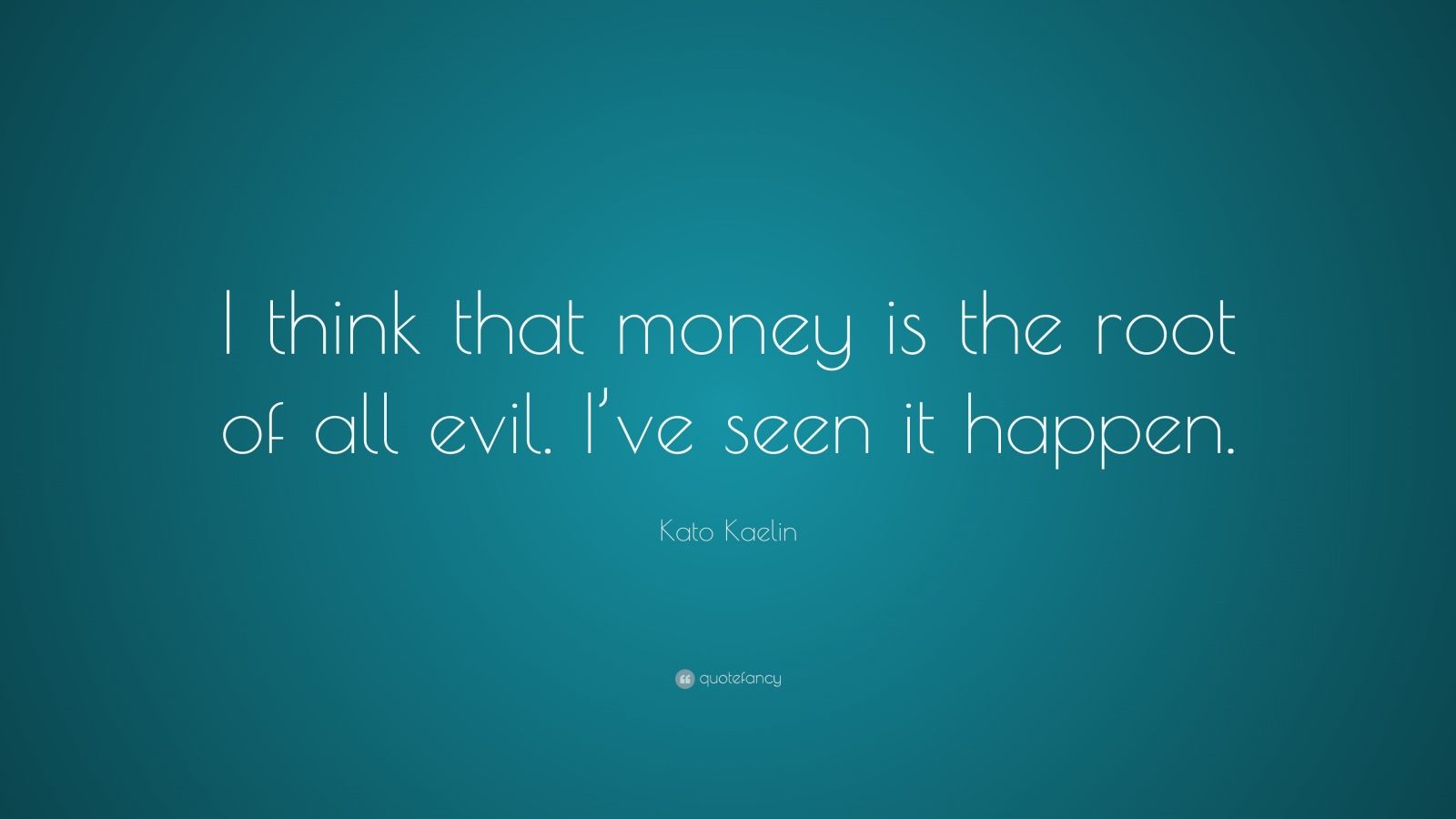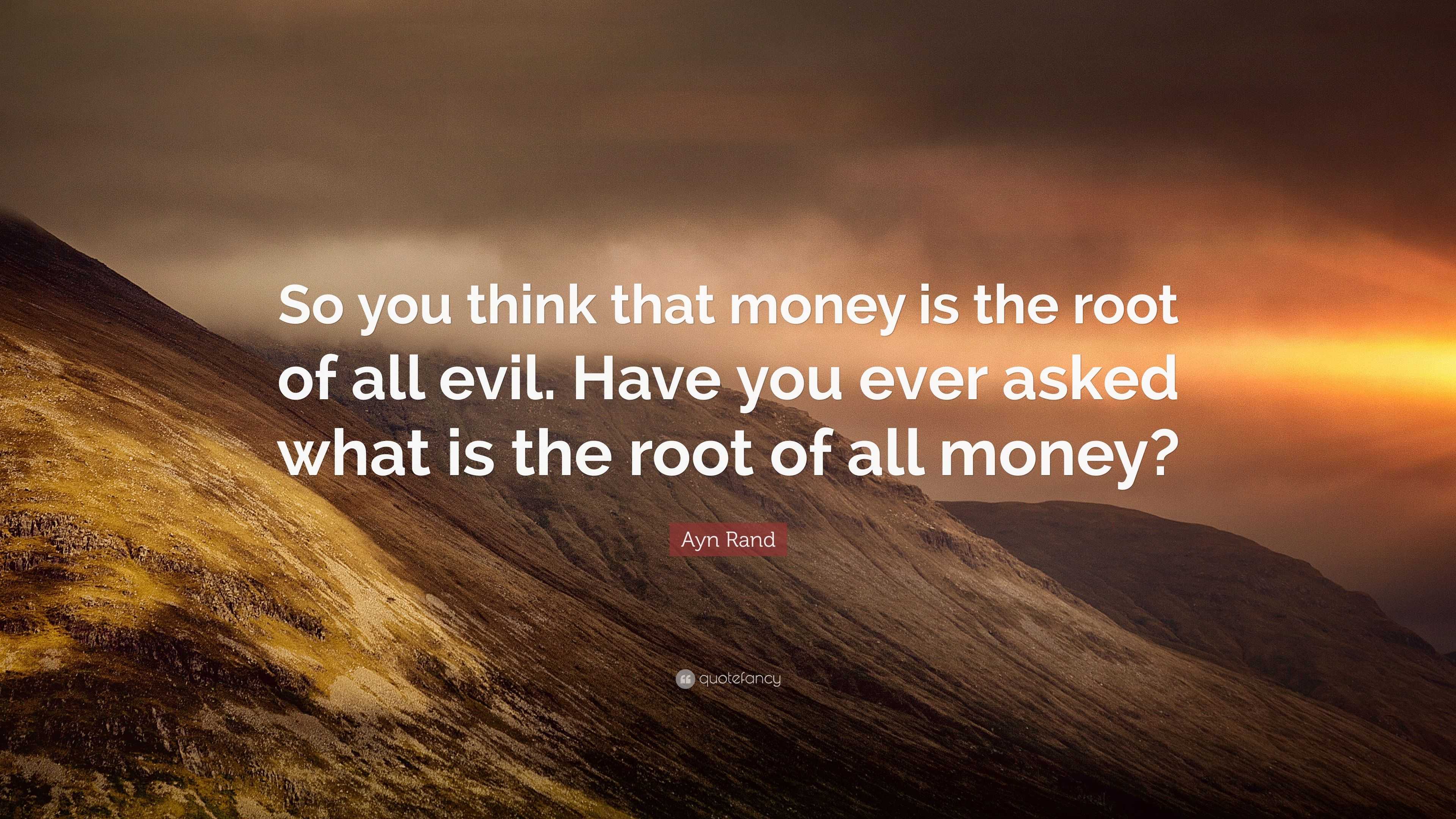

#IS MONEY THE ROOT OF ALL EVIL FREE#
The author of Hebrews wrote, “Keep your lives free from the love of money and be content with what you have, because God has said, ‘Never will I leave you never will I forsake you’” ( Hebrews 13:5). The love of money is evil because we are commanded to have no other gods besides the one, true God. No matter what earthly wealth or object we are looking for, we were made to crave more of our Creator. No amount of wealth can satisfy our souls. God assures us His provision, yet we strive to earn a monetary living. John Piper writes that “It is possible that when Paul wrote these words, he was fully aware how challenging they would be, and that he left them just as he wrote them because he saw a sense in which the love of money is indeed the root of all evils- all evils! And he wanted Timothy (and us) to think down deep enough to see it.”

Regardless, anything we worship (or value, or focus on, etc.) more than God is an idol. However there are others who hold to the literal text. Some modern translations of Scripture suggest that only the love of money is evil, not money itself.

There are two schools of Biblical thinking about money. Having faith in God rather than faith in our money is a challenging discipline, especially when money feels like an “easy fix.” Bottom line: God wants us to trust Him and to experience His love and provision for us.“For where your treasure is, there your heart will be also” ( Matthew 6:21). Rooting out a love of money happens when we return our focus to God as our Provider and Protector.Īlso, we need to acknowledge that His plans and purposes for us (including during challenging financial times) are good. Dealing with “bad fruit” in our financial life is just like dealing with “bad fruit” in other areas of our lives. If you find that your financial attitudes and actions reveal an unhealthy attachment to or obsession with money and its benefits, you probably are in a position of putting money ahead of God in your life as a source of life and wholeness. Are you spending more money than you make? Are you giving any money away? Are you consistent in your debt repayment and savings habits? In short, do you exhibit self-discipline in relationship to your money? What are your financial actions like? Examine your checkbook to see where your money goes. What is your attitude toward money? Does your heart hold tightly to your money? Do you spend a lot of time obsessing over your plans or fears about your money? Do you engage in “retail therapy” on a regular basis as a way to regulate your emotions? In short, do you allow your emotions to be dictated by your financial state? If so, you could, potentially, have a love of money. I think the answer is found in examining two specific types of “fruit” in our lives: our attitude and our actions. So, how do I know if I am putting my trust in money above God and opening the door to evil? It is our sinful nature that causes us to worship false gods, such as money. The primary question from this verse is, “am I putting money above God in my life?”Īs a follower of Christ, I want Him to be first, but it is very easy to be distracted by other, tangible or natural things that we believe will bring us life and wholeness. This week, I want to share with you one of the more common myths that I hear: “money is the root of all evil.” As you examine the verse in I Timothy 6:10, you see that it says, “the love of money is a root of all kinds of evil.” It is not money in itself that is evil, it is our love of it that leads us into evil. There are a lot of myths when it comes to money. Money Myth – Money is the Root of All Evil


 0 kommentar(er)
0 kommentar(er)
